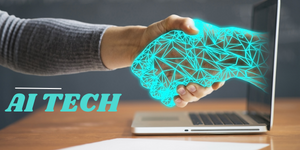Navigating the Future: Exploring Smart Technology Trends Shaping Our World
Introduction:
Smart technology has become an integral part of our lives, shaping the way we interact with the world around us. From intelligent homes to advanced healthcare solutions, the evolution of smart technologies is influencing every aspect of our daily routines. In this article, we will delve into the key smart technology trends that are not only transforming our present but also steering us towards an innovative and interconnected future.
1. Internet of Things (IoT):
The Internet of Things stands at the forefront of smart technology trends, connecting devices and systems to enhance efficiency and functionality. IoT enables seamless communication between devices, allowing them to share data and operate cohesively. From smart thermostats that adjust based on your preferences to wearable devices monitoring health metrics, IoT is creating a more interconnected and automated world.
2. Artificial Intelligence (AI) Integration:
Artificial Intelligence has evolved beyond a buzzword, becoming a driving force behind smart technology trends. AI enables devices to learn from user behavior, adapting and improving over time. Virtual assistants like Siri and Alexa exemplify how AI enhances daily life by providing personalized assistance and automating tasks. As AI continues to advance, we can expect even more sophisticated applications across various domains, from predictive analytics to autonomous vehicles.
3. 5G Connectivity:
The rollout of 5G networks is revolutionizing connectivity, unlocking new possibilities for smart technology. With faster and more reliable internet speeds, 5G facilitates real-time communication between devices, enabling applications like augmented reality and virtual reality to reach new heights. The increased bandwidth and low latency of 5G pave the way for a more connected and responsive smart ecosystem.
4. Edge Computing:
Edge computing is reshaping the way data is processed and analyzed. Instead of relying solely on centralized cloud servers, edge computing brings data processing closer to the source, reducing latency and enhancing efficiency. This trend is particularly significant for applications requiring real-time decision-making, such as autonomous vehicles and smart city infrastructure.
5. Smart Home Innovations:
The concept of a smart home has evolved from a futuristic vision to a tangible reality. Smart thermostats, lighting systems, security cameras, and voice-activated assistants are just a few examples of how technology is transforming our living spaces. The integration of these devices not only adds convenience but also contributes to energy efficiency and home security.
6.Augmented and Virtual Reality (AR/VR):
Augmented and virtual reality technologies are breaking new ground in entertainment, education, and various industries. AR overlays digital information onto the real world, enhancing our perception and interaction, while VR immerses users in a simulated environment. These technologies are redefining the way we experience content, from virtual meetings to immersive gaming.
7. Blockchain in IoT Security:
As IoT devices proliferate, ensuring security becomes paramount. Blockchain technology, known for its decentralized and secure nature, is increasingly being integrated into IoT systems to protect against cyber threats. The combination of blockchain and IoT enhances data integrity and ensures that connected devices operate in a secure and trustworthy environment.
8. Health Tech Revolution:
Smart technology is making significant inroads into the healthcare sector, transforming patient care and management. Wearable devices, health monitoring apps, and telemedicine platforms enable individuals to take control of their health. AI-driven diagnostics and predictive analytics assist healthcare professionals in making more informed decisions, ultimately improving patient outcomes.
9.Smart Cities and Sustainable Solutions:
The concept of smart cities involves leveraging technology to enhance urban living, promoting sustainability and efficiency. From intelligent traffic management systems to energy-efficient infrastructure, smart cities aim to create environments that respond dynamically to the needs of their residents. IoT sensors and data analytics play a crucial role in optimizing city operations and resource utilization.
10.Robotics and Automation:
Advancements in robotics and automation are reshaping industries and daily tasks. From robotic vacuum cleaners to automated manufacturing processes, these technologies streamline operations and enhance productivity. Collaborative robots, known as cobots, are designed to work alongside humans, opening up new possibilities for efficiency and safety in various sectors.
Conclusion:
The landscape of smart technology is continually evolving, promising a future where connectivity, intelligence, and automation seamlessly integrate into our daily lives. As IoT, AI, 5G, and other innovations continue to mature, we can anticipate a world where our homes are smarter, our healthcare is more personalized, and our cities are sustainable and efficient. Embracing these smart technology trends not only enhances our present experiences but also paves the way for an exciting and interconnected future.













